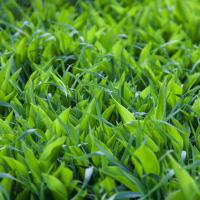What to Do if Your Cat Eats a Toxic Plant
Introduction
Cats are curious creatures and often explore their surroundings by chewing or eating things. However, this can be a problem if they eat something toxic, especially plants. Many common houseplants are toxic to cats and can cause severe health problems or even death. As a cat owner, it鈥檚 important to know what to do if your cat eats a toxic plant.
Recognize the Symptoms
The first step in dealing with a cat that has eaten a toxic plant is to recognize the symptoms. These can include:
- Vomiting
- Diarrhea
- Loss of appetite
- Lethargy
- Seizures
- Difficulty breathing
- Increased heart rate
- Tremors
If you notice any of these symptoms, it鈥檚 important to act quickly.
Call Your Vet
If you suspect that your cat has eaten a toxic plant or is exhibiting any of the symptoms listed above, the first thing you should do is call your veterinarian. They can advise you on the best course of action, depending on the severity of your cat鈥檚 symptoms and the type of plant they have eaten.
Bring in Plant Samples
If possible, bring in a sample of the plant your cat has eaten. This will help your veterinarian identify the plant and determine how toxic it is. Be sure to bring in a large enough sample so that your veterinarian can identify the plant with certainty.
Induce Vomiting
In some cases, your veterinarian may recommend inducing vomiting. This is typically done if your cat has eaten a toxic plant within the past few hours. Your veterinarian may recommend administering hydrogen peroxide or a similar substance to help your cat vomit. However, do not attempt to induce vomiting without first consulting your veterinarian.
Provide Supportive Care
If your cat has eaten a toxic plant, they may require supportive care. This can include:
- Fluid therapy to prevent dehydration
- Medications to control vomiting or diarrhea
- Oxygen therapy
- Hospitalization for close monitoring
Your veterinarian will determine the most appropriate treatment based on your cat鈥檚 symptoms and the type of plant they have eaten.
Prevent Future Incidents
The best way to deal with a cat that has eaten a toxic plant is to prevent it from happening in the first place. Here are a few ways to keep your cat safe:
- Keep toxic plants out of your home or yard.
- If you must have toxic plants, keep them in an area that your cat cannot access.
- Train your cat not to chew on plants.
- Supervise your cat when they are outside.
By taking these steps, you can help prevent your cat from eating toxic plants and ensure that they stay healthy and happy.
Conclusion
If your cat has eaten a toxic plant, it鈥檚 important to act quickly to prevent serious health problems. By recognizing the symptoms, calling your veterinarian, and providing supportive care, you can help your cat recover. And by taking steps to prevent future incidents, you can keep your cat safe and healthy for years to come.

 how many times do yo...
how many times do yo... how many planted tre...
how many planted tre... how many pine trees ...
how many pine trees ... how many pecan trees...
how many pecan trees... how many plants comp...
how many plants comp... how many plants can ...
how many plants can ... how many plants and ...
how many plants and ... how many pepper plan...
how many pepper plan...































